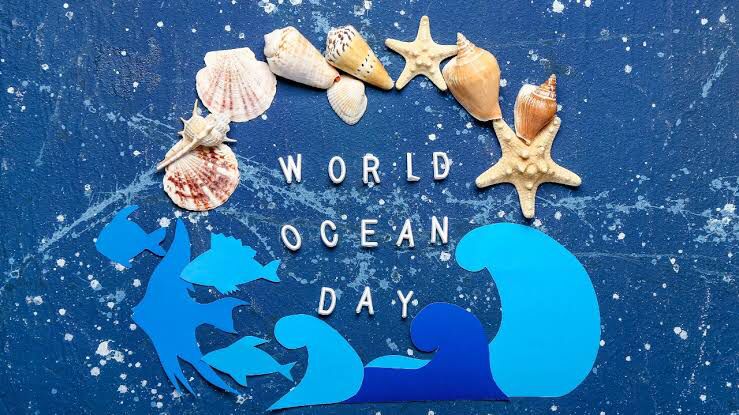Every year on June 8th, we celebrate World Ocean Day, a global call to action to recognize the immense value of our oceans and the urgent need for their protection. These vast, watery expanses cover over 70% of our planet, a realm teeming with an incredible diversity of lifeforms. From the majestic humpback whales gliding through the open ocean to the intricate coral reefs teeming with colorful fish, the ocean is an awe-inspiring and vital part of our world. The Department of Agriculture and Fisheries joined the global community under the theme, “Awaken new depth: catalysing action for our ocean and climate”.
The Ocean: Our Life Support System
But the ocean is much more than just a beautiful and mysterious place. It plays a critical role in regulating Earth’s climate. The ocean absorbs vast amounts of heat from the sun, acting as a giant thermostat that keeps our planet habitable. It also plays a crucial role in the water cycle, transporting moisture around the globe and influencing weather patterns. Additionally, the ocean absorbs a significant portion of the carbon dioxide we release into the atmosphere, mitigating the effects of climate change.
A Call to Action: Threats We Face
Ocean
Unfortunately, our oceans are under immense pressure. Climate change, pollution, and overfishing are taking a significant toll on this vital resource. Rising sea levels due to global warming threaten coastal communities and ecosystems. Plastic pollution, estimated to outweigh all the fish in the ocean by 2050 [1], chokes marine life and disrupts entire ecosystems. Overfishing leads to depleted fish stocks, disrupting the delicate food webs that sustain the ocean’s health.
Taking Action: Protecting Our Oceans for All
The good news is that we are not powerless to stop this decline. Here are some ways we can all play a part in protecting our oceans:
- Reduce your seafood consumption: Overfishing is a major threat. By making even small changes in your diet, like choosing sustainable seafood options or opting for plant-based alternatives a few times a week, you can help reduce pressure on fish populations.
- Reduce, Reuse, Recycle: Our everyday choices can significantly impact the amount of plastic ending up in the ocean. Reduce your use of single-use plastics, reuse what you can, and recycle diligently.
- Support Ocean Conservation Organizations: Numerous organizations are dedicated to ocean conservation. Consider donating to or volunteering with these groups to make a real difference.
- Educate Yourself and Others: Knowledge is power! Learn more about the threats facing our oceans and share that knowledge with your friends and family.
Spotlight on Sharks: Guardians of the Deep
The fact you mentioned about shark culling is a stark example of the imbalances affecting our oceans. Sharks, often demonized in popular culture, play a vital role in maintaining the health of our marine ecosystems. They function as apex predators, controlling populations of other fish and keeping marine food webs in balance. The decline of shark populations has cascading effects, disrupting entire ecosystems and ultimately impacting the health of our oceans.
Beyond World Ocean Day: Everyday Action Matters
World Ocean Day is a time for celebration and global action, but the responsibility for protecting our oceans extends far beyond a single day. By making conscious choices in our daily lives, we can collectively make a significant difference. Consider these additional ways to be an ocean advocate:
Table of Contents
- Choose ocean-friendly products: Many cleaning products and cosmetics contain harmful chemicals that can pollute the ocean. Research and choose eco-friendly alternatives.
- Support Sustainable Businesses: Seek out companies committed to sustainable practices and products that minimize their impact on the ocean.
- Reduce your carbon footprint: Climate change is a significant threat to our oceans. Making changes to reduce your carbon footprint, like using public transportation or riding a bike, can help.
- Spread Awareness: Talk to family and friends about the importance of protecting the oceans. The more people who understand the threats, the more likely we are to find solutions.
The ocean is the heart of our planet, a vibrant and complex system that sustains all life. By taking action at all levels, from individual choices to global policy changes, we can reverse the damage and ensure a healthy future for our oceans and ourselves. Let’s work together to ensure that future generations can still experience the wonder and beauty of a thriving ocean.



